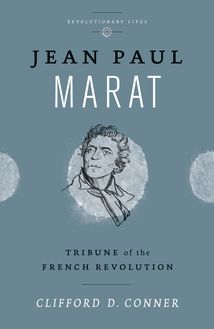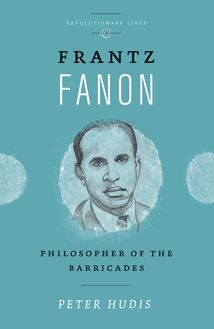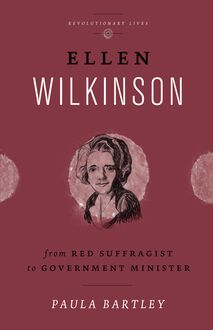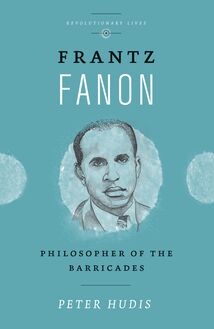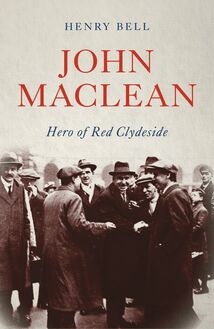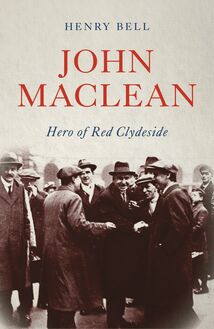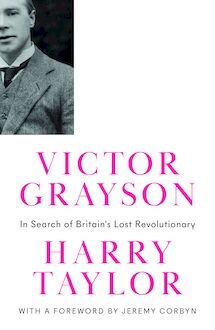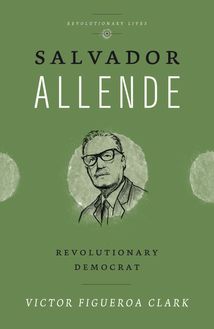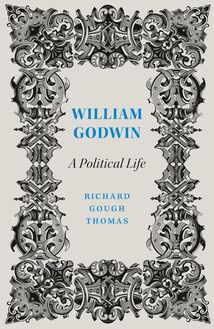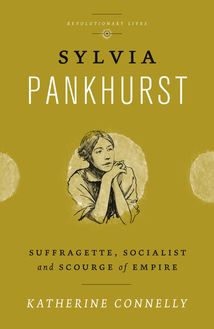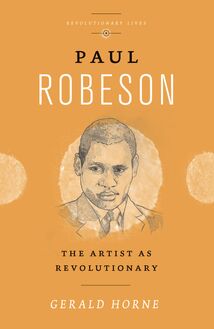Gerrard Winstanley , livre ebook
105
pages
English
Ebooks
2012
Vous pourrez modifier la taille du texte de cet ouvrage
Obtenez un accès à la bibliothèque pour le consulter en ligne En savoir plus
Découvre YouScribe en t'inscrivant gratuitement
Découvre YouScribe en t'inscrivant gratuitement
105
pages
English
Ebooks
2012
Vous pourrez modifier la taille du texte de cet ouvrage
Obtenez un accès à la bibliothèque pour le consulter en ligne En savoir plus
Publié par
Date de parution
09 novembre 2012
Nombre de lectures
1
EAN13
9781849646772
Langue
English
Poids de l'ouvrage
4 Mo
John Gurney reveals the hidden history of Winstanley and his movement. As part of the radical ferment which swept England at the time of the civil war, Winstanley led the Diggers in taking over land and running it as 'a common treasury for all' - provoking violent opposition from landowners. Gurney also guides us through Winstanley's writings, which are among the most remarkable prose writings of his age.
Gurney proves that the Diggers, (or the New Levellers, as they called themselves) remain as an inspiration to many radical movements today.
1. Introduction
2. The Making of the Digger
3. Winstanley the Digger
4. A New Beginning?
5. Winstanley’s Legacy
Notes
Index
Publié par
Date de parution
09 novembre 2012
Nombre de lectures
1
EAN13
9781849646772
Langue
English
Poids de l'ouvrage
4 Mo
Gerrard Winstanley
Revolutionary Lives
Series Editors: Brian Doherty, Keele University; Sarah Irving, University of Edinburgh; and Professor Paul Le Blanc, La Roche College, Pittsburgh
Revolutionary Lives is a book series of short introductory critical biographies of radical political figures. The books are sympathetic but not sycophantic, and the intention is to present a balanced and where necessary critical evaluation of the individual’s place in their political field, putting their actions and achievements in context and exploring issues raised by their lives, such as the use or rejection of violence, nationalism, or gender in political activism. While individuals are the subject of the books, their personal lives are dealt with lightly except in so far as they mesh with political issues. The focus of these books is the contribution their subjects have made to history, an examination of how far they achieved their aims in improving the lives of the oppressed and exploited, and how they can continue to be an inspiration for many today.
Published titles:
Leila Khaled: Icon of Palestinian Liberation
Sarah Irving
Jean Paul Marat: Tribune of the French Revolution
Clifford D. Conner
www.revolutionarylives.co.uk
First published 2013 by Pluto Press 345 Archway Road, London N6 5AA
www.plutobooks.com
Distributed in the United States of America exclusively by Palgrave Macmillan, a division of St. Martin’s Press LLC, 175 Fifth Avenue, New York, NY 10010
Copyright © John Gurney 2013
The right of John Gurney to be identified as the author of this work has been asserted by him in accordance with the Copyright, Designs and Patents Act 1988.
British Library Cataloguing in Publication Data
A catalogue record for this book is available from the British Library
ISBN 978 0 7453 3184 3 Hardback
ISBN 978 0 7453 3183 6 Paperback
ISBN 978 1 8496 4676 5 PDF eBook
ISBN 978 1 8496 4678 9 Kindle eBook
ISBN 978 1 8496 4677 2 EPUB eBook
Library of Congress Cataloging in Publication Data applied for
This book is printed on paper suitable for recycling and made from fully managed and sustained forest sources. Logging, pulping and manufacturing processes are expected to conform to the environmental standards of the country of origin.
10 9 8 7 6 5 4 3 2 1
Designed and produced for Pluto Press by Chase Publishing Services Ltd Typeset from disk by Stanford DTP Services, Northampton, England Simultaneously printed digitally by CPI Antony Rowe, Chippenham, UK and Edwards Bros in the United States of America
To Rachel, Thomas and Anna
Contents
Acknowledgements
1 Introduction
2 The Making of the Digger
3 Winstanley the Digger
4 A New Beginning?
5 Winstanley’s Legacy
A Note on Sources and Further Reading
Notes
Index
Acknowledgements
My thanks to Ann Hughes for suggesting that I write this book, and to David Castle and Brian Doherty for all their expert advice and help. In the course of working on the book I have had valuable exchanges on Winstanley with Scott Ashley, Fabrice Bensimon, Andrew Bradstock, Jeremy Boulton, Ian Bullock, Fergus Campbell, Colin Davis, Martyn Hammersley, Rachel Hammersley, Ariel Hessayon, Geoff Horn, Ann Hughes, William Lamont, David Taylor and Derek Winstanley, and I am grateful to them all. Rachel, Thomas and Anna have been immensely supportive and patient throughout – this book is dedicated to them, with love.
1
Introduction
In the summer of 1918, as the first anniversary of the October Revolution approached, steps were taken in Moscow to implement one of Lenin’s pet projects, his plan for monumental propaganda. According to a decree that had been issued on 12 April, surviving symbols of the Tsarist regime were to be systematically removed, and monuments to past revolutionary thinkers and activists set up along major routes in the metropolis. Similar plans were laid for Petrograd. Among the old Tsarist symbols which faced destruction was a large granite obelisk standing prominently in the Alexander Gardens by the Kremlin, and which had been erected as recently as 1913 to commemorate 300 years of Romanov rule. It was Lenin who took the decision to save the obelisk, when it became clear that re-use might be preferable to demolition. As civil war in Russia intensified, work on new monuments had proved much more difficult than expected, and it was apparent that few would be ready for the first anniversary celebrations. It made good sense to recycle an older monument, even at the risk of upsetting Moscow’s avant-garde artists and sculptors. The Romanov two-headed eagle was removed from the Alexander Gardens obelisk, and the names of tsars were effaced; in their place the names of 19 leading revolutionary thinkers were inscribed. As might be expected, Karl Marx and Friedrich Engels headed the list, but the eighth name was that of ‘Uinstenli’, or Gerrard Winstanley (1609–76), best known as leader of the seventeenth-century English Diggers, who in April 1649 had occupied waste land at St George’s Hill in Surrey, sowed the ground with parsnips, carrots and beans, and declared their hope that the Earth would soon become ‘a common treasury for all, without respect of persons’. 1
The Alexander Gardens obelisk, Moscow. Winstanley is eighth on the list, after Marx, Engels and other leading revolutionary thinkers. Credit: Mitrius (wikimedia commons).
Why should Lenin and his associates have chosen Winstanley as one of the thinkers whose work might be seen to have helped pave the way for the massive upheavals of October 1917? What was it that brought Winstanley into this Pantheon of great revolutionaries, and provided a link, however tenuous, between the English and Russian revolutions? At first sight, the presence of Winstanley’s name seems puzzling. Winstanley was not particularly well known even in his own time, and he was certainly not one of the dominant figures of his age. His period of public activity lasted for only a brief, four-year period from 1648 to 1652, and the Diggers were active for little more than a year before their colonies in Surrey and elsewhere were broken up, their crops trampled and their houses burned. In the two centuries after Winstanley’s death his writings were read by only a small number of people, and it was not until the last decade of the nineteenth century that his life and works became better known, and socialists came to rediscover a figure who appeared to anticipate many of their own beliefs. The mid-century Chartists had known and praised the Leveller leader John Lilburne, but Winstanley passed them by. 2 His rediscovery came too late even for Marx and Engels, to whom Winstanley’s ideas were apparently completely unknown. 3 There is no evidence that William Morris, the English socialist whose News from Nowhere might seem to indicate a knowledge of Winstanley’s writings, had ever read a word of them. It was Eduard Bernstein who in 1895 provided the first systematic analysis of Winstanley’s ideas in his contribution to Karl Kautsky’s Forerunners of Modern Socialism , thus enabling Marxist intellectuals for the first time to appreciate their significance. 4
Winstanley was a religious thinker and visionary, strongly influenced by the mystical writings that were so popular among radicals in the English Revolution; his work was suffused with biblical quotation and he shared fully in the millenarian excitement of the age. In many ways there was a world of difference between him and late nineteenth-century Marxists. Yet it is possible to understand how the latter might come to take an interest in Winstanley and to see in him a precursor, however distant, of Marx. Winstanley’s views were always distinctive: he chose to use the word Reason in place of the word God, he insisted that humanity and the whole creation had been corrupted by covetousness, competitiveness and false dealings, and he anticipated a time when all would come to recognise the virtue of abandoning private property and working in common. In Winstanley’s writings Marxists could find some of the most trenchant criticisms of contemporary social relations to appear from a seventeenth-century pen, and they would readily have acknowledged the importance of his insight that only a wholesale transformation of society, brought about by knowledgeable, regenerate individuals working together, would rid humankind of suffering and exploitation. 5 All of society’s and the earth’s problems could, it seemed, be linked to the rise of private property and monetary exchange; the creation of a moneyless and property-less society was not only desirable but inevitable. The forthcoming transformation – the ‘restoration of all things’ – would be liberating for all, rich as well as poor. 6 To late nineteenth-century students of Marx, Winstanley’s vision of ‘community’ might appear consistent with their understanding of communism – a word first coined in their own century. Through a close reading of Winstanley, they might also – as Eduard Bernstein and Georgi Plekhanov both did – spot rudimentary attempts to formulate familiar Marxian concepts such as alienation and the labour theory of value. 7 It is no wonder that Bernstein, who did so much to make Winstanley’s writings better known, could in 1895 describe Winstanley as being well ahead of his contemporaries, and praise the skill with which he made connections between the social conditions of his time and their causes. 8
Winstanley’s appeal to Marxists lay not only in his perceptive social criticism, but also in his recognition of the importance of agency and self-emancipation. Like many seventeenth-century radicals Winstanley proclaimed his preference for action over words, but while some radicals advocated charitable help for the poor, Winstanley was insistent that the poor should take responsibility for freeing themselves from their burdens. The actions of the poor in working the land in common, and in refusing to work for
